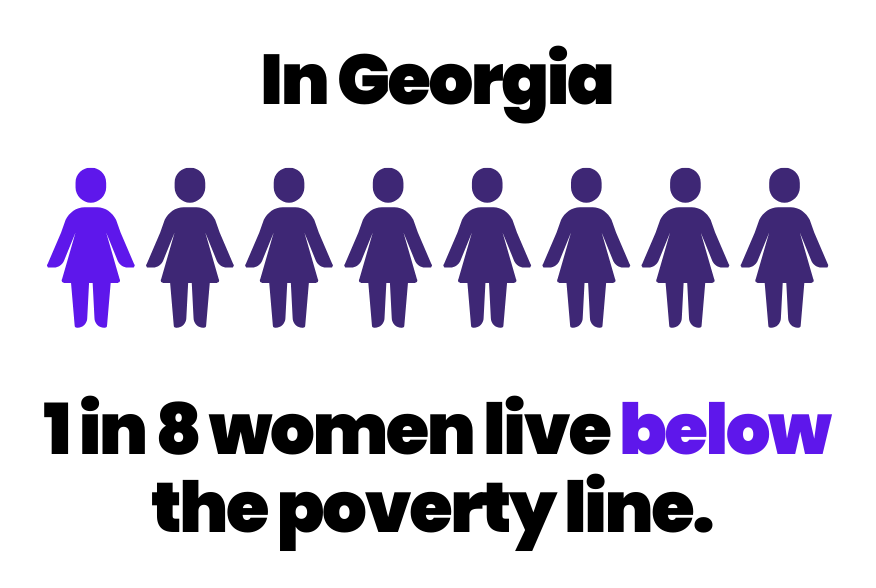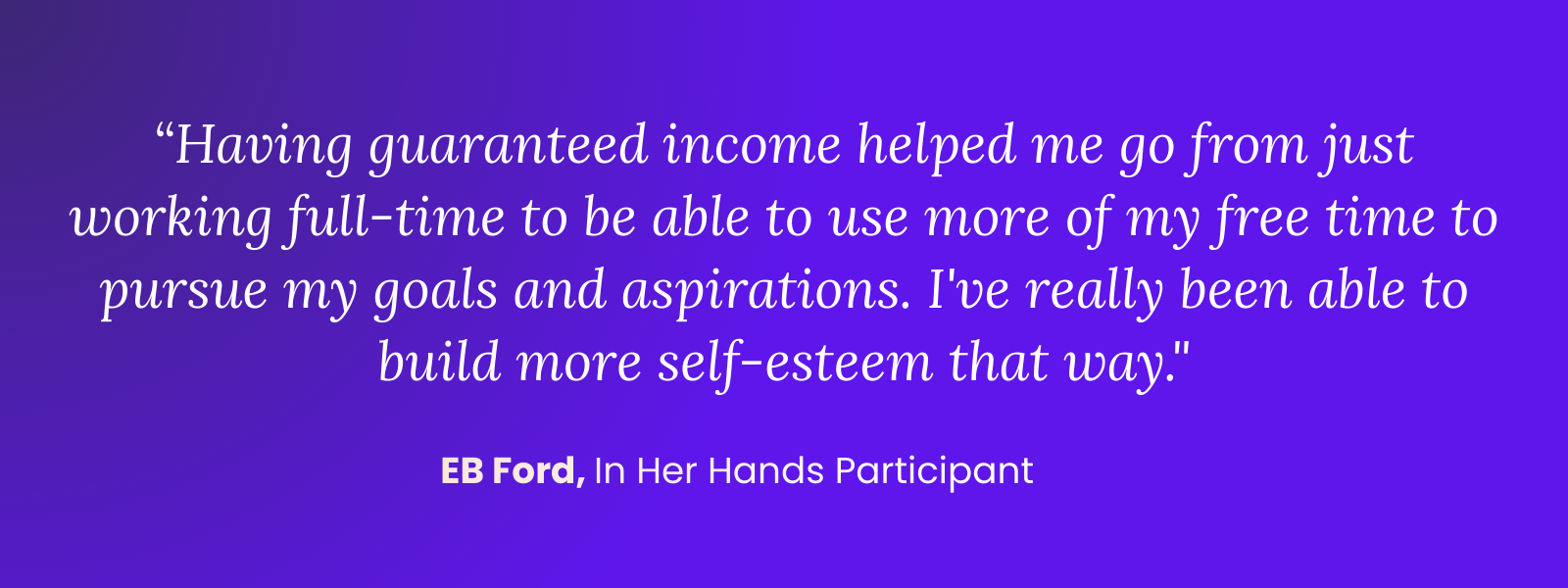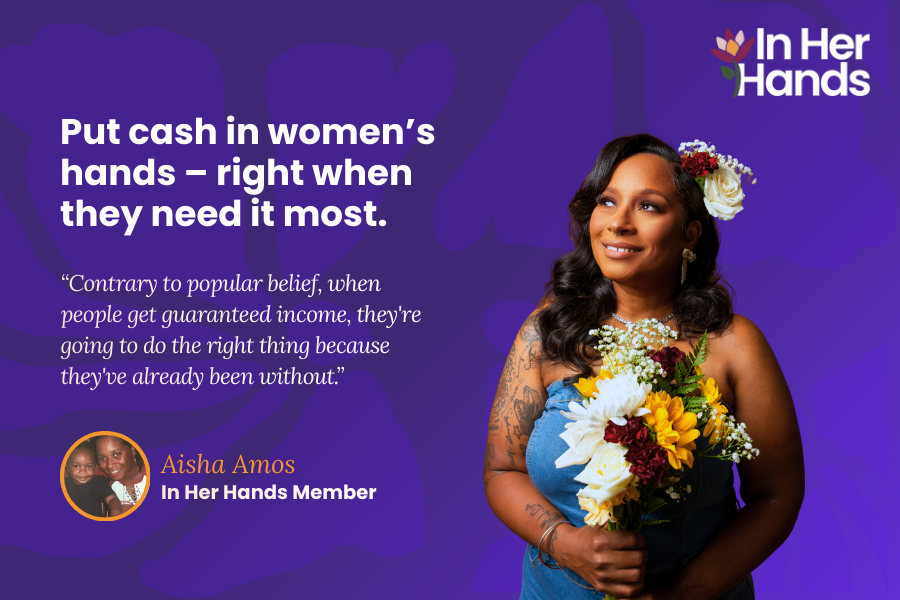Make a financial gift today to put cash in women’s hands — right when they need it most.
.__9_.png)
When a family is one unexpected bill away from crisis, cash is often the difference between falling behind and staying afloat.
At the GRO Fund, we build bold, evidence-based, and community-led solutions to address poverty and economic insecurity in Georgia. Your gift fuels In Her Hands – GRO’s flagship guaranteed income program — so that women can meet basic needs, navigate emergencies, and keep moving their lives forward.

Research shows that guaranteed income provides people with:
- Critical cash to weather financial emergencies
- More stability at home, helping cover essentials and reduce stress
- “Breathing room,” that supports mental health, well-being, and future planning

That’s hundreds of thousands of women who are working, caregiving, and still not earning enough for basics like rent, food, and transportation.
Your financial gift supports a community-driven program that puts cash and decision-making where it belongs most — in women’s hands.
Aisha is a master cosmetologist, mom, and community-minded leader. She applied to the In Her Hands (IHH) program after closing her salon due to a health issue. The guaranteed income provided by IHH helped stabilize Aisha and her family, easing financial pressures and allowing her to look ahead to returning to school and planning her next chapter. Hear from Aisha in her own words.
Why direct cash? Because families are the experts of their own lives, and flexible, no-strings-attached support works.

Cash removes impossible tradeoffs: When money is tight, women are forced into choices they shouldn’t have to make – food or rent, diapers or gas, prescriptions or the light bill. Direct cash helps families cover essentials without sacrificing one need to meet another.
- True autonomy: Women know what their families need. Direct cash lets them decide how to use it, without intrusive rules or someone else second-guessing their choices.
- Direct, efficient, and targeted: Funds go directly to households, not intermediaries, maximizing reach for those with the greatest need.
- Prevents the spiral: Even one monthly direct cash payment can reduce the cascade of late fees, shut-offs, overdraft charges, and high-interest debt after an emergency.
- Evidence-backed: GRO joins hundreds of other direct cash programs across the country, showing the same consistent result: cash improves economic stability and reduces hardship.
Your gift makes an impact. Consider becoming a monthly donor to help support the research, learning, and storytelling needed to inform long-term policy change.
“1 in 8 women in Georgia lives below the poverty line.” Source: Georgia Budget and Policy Institute, “Women’s Equality Day: Reflecting on Power, Progress and Persistent Gaps in Georgia” (2024), citing KFF 2022 data.
